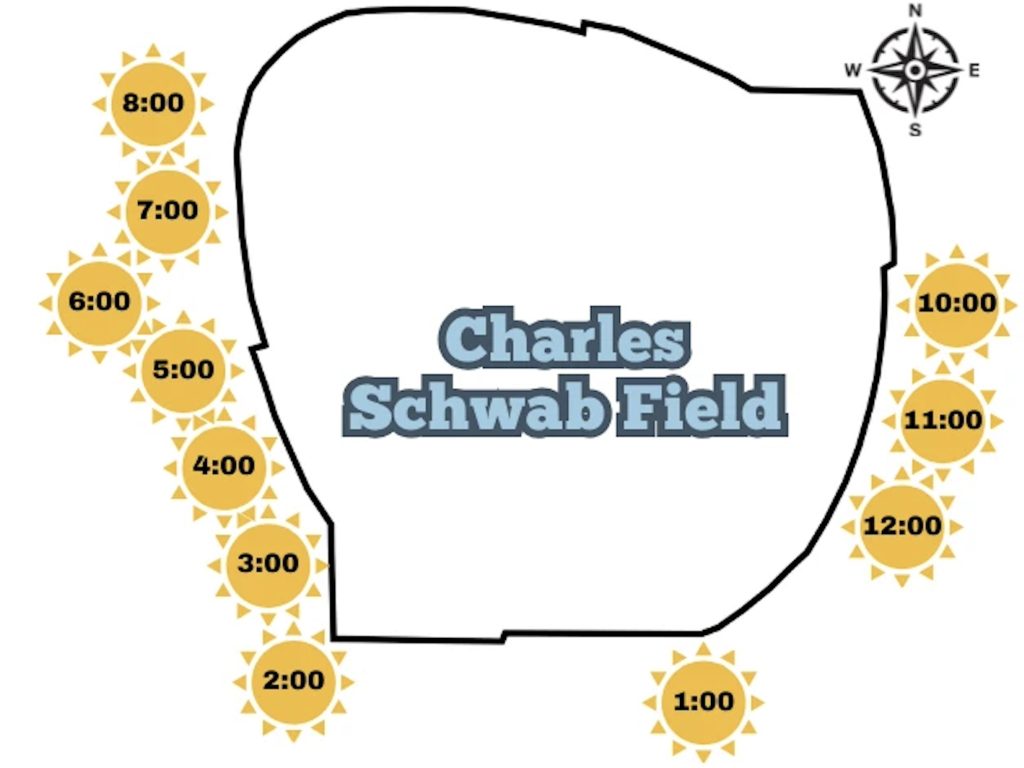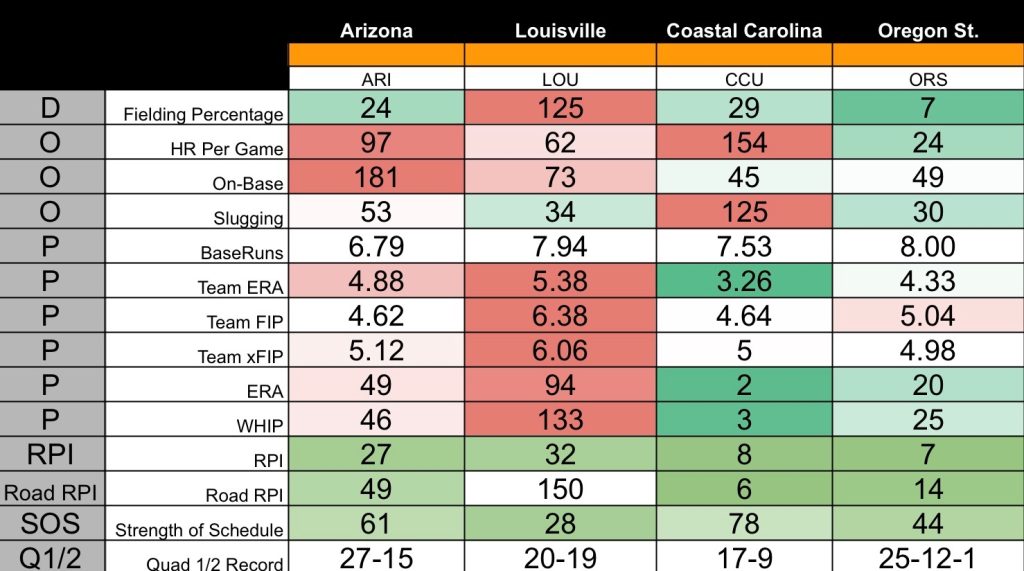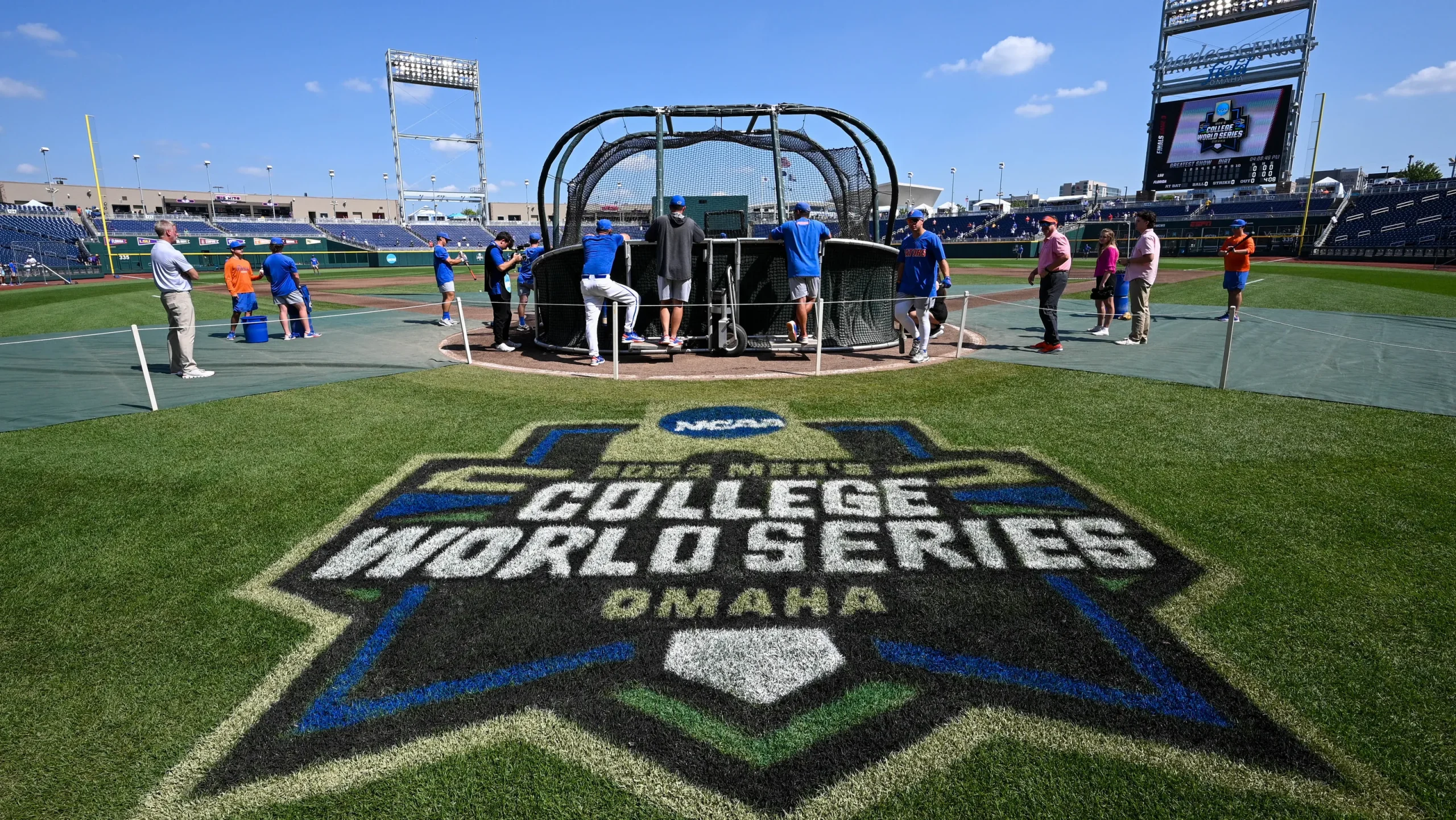The College World Series has finally landed, as 307 Division I programs have been narrowed down to a field of 8 teams. Eight separate fan bases will pack Charles Schwab Field in Omaha, formerly TD Ameritrade Park. As one of the rising premier sporting events on the calendar, a College Baseball national champion will be crowned after 10 days of action.
The format of the College World Series can be confusing to newcomers of the event. Teams are separated into groups of four in two brackets. Those bracket positions were predetermined by the 16 top seeded elected by the NCAA selection committee. There is no reseeding in Men’s College Baseball, as Regionals and Super Regionals funnel to a single position in the bracket. Each bracket is determined by a double-elimination bracket of four teams, similar to Regionals. The two bracket winners will then face off in a best of three series of the Championship Round, a similar format to the Super Regionals.

This article will focus solely on Bracket 1, scheduled to start on Friday, June 13th. Coastal Carolina, Arizona, Oregon State and Louisville will play a double-elimination format to send a team to the Championship Series. Before diving into the individual matchups and the pick selection to win Bracket 1, plenty of notes are needed on the Park Factors associated with Charles Schwab Field.
Charles Schwab Park Factors
Park Factors is a statistic that indicates a particular ballpark affect that correlates to the outcome of the games by influencing the scoring of runs. Any Major League Baseball fan knows Coors Field is a haven for runs in the summer, while the Seattle Mariners home field of T-Mobile is aiming for a fourth consecutive toughest venue to score. There is no mystery as how Charles Schwab Field plays during the College World Series.
Omaha will be a shock to the system of all 8 teams, as the lowest Park Factors number for every team comes with Oregon State at 0.95. A factor of 1.00 indicates a neutral ballpark, while above the mark is favorable for hitters. Alex Box for LSU has a 6-year average of 1.18, while Coastal Carolina clocks in at 1.30 over the past three years. Charles Schwab is on the other side of hitter friendly, measuring in with a Park Factor of 0.85. These numbers are factored into projected totals through every game in the College World Series.
Another notable comes in the game times, generally at 1pm and 6pm starts. For anyone who has traveled to Omaha for the event knows weather plays a major role in start times, but games that start between 4pm and 6pm CST can create shadows between the pitchers mound and home plate. If a heavy lean to the Under was not already in play for every game, always check start times and factor in a whipping wind that can change directions at anytime.

Bracket 1 Breakdown


Handicapping the Opening Games
As of this writing, Friday projects to have 50% thunderstorms and winds below 10mph pushing out of left field. Coastal Carolina and Arizona will get the opening duties of the tournament, two teams with striking similarities in elite fielding percentage and downgraded home run power. However, the Wildcats are in the top 50 in doubles and lead the nation in triples. Charles Schwab is a workshop for teams that love to slap balls off the fence, an area Coastal Carolina may submit to Arizona. If there is an area the Chanticleers will use against every opponent, it’s the bunt. Coastal Carolina ranks 9th nationally in sacrifice bunts, as every Arizona pitcher will be expected to come off the mound during this game.
Cameron Flukey is expected to get the start for Coastal Carolina against Arizona’s Owen Kramkowski. The Wildcats opening starter was annihilated against North Carolina, giving up 8 earned runs after recording just four outs. Kramkowski had plenty of success in two prior games away from home against Cal Poly and BYU. It’s worth noting that Utah bunted on three occasions over four innings against Kramkowski on May 9th, an element Kevin Schnall is sure to expose.
There has been nothing flukey about Flukey, allowing more than three earned runs in just one outing for Coastal Carolina since March 29th. The Chanticleers ace has averaged between 89 and 99 pitches over his past five starts, averaging 5.7 innings per outing against a 3.34 ERA. Keep an eye out on the opening number, as Coastal Carolina projects as a -180 favorite and brings a heavy edge in base runs.
Dax Whitney was moved from a Saturday/Game 2 role to the opening starer for Oregon State in the Super Regionals. The freshman phenom has allowed a grand total of 6 earned runs over his past 5 starts spanning 26.2 innings. After throwing 104 pitches against TCU in the Regionals, Whitney followed that up with a 97 pitch effort that resulted in 10 strikeouts against Florida State in the Super Regional. The Beavers hold a supreme advantage in offensive output, scoring at least 9 runs in four of their past six games. Despite scoring just a single run against the Seminoles Jamie Arnold, Oregon State stranded 9 runners in the loss.
Patrick Forbes will get the nod with the backing of a Louisville offense that generated 29 hits in three games against Miami in the Super Regionals. Forbes has been a strikeout machine over the past two starts, generating 22 against the Hurricanes and ETSU in the Regionals. The junior right hander has also issues 8 walks in the past two post season games. The Oregon State sticks will get the full Forbes experience, ranking 217th in strikeout rate and 11th in walk rate. Ultimately, there is a massive difference in pitching staff ERA, FIP and xFIP between these two teams with the Beavers having the advantage.
Bracket 1 Winner
Only one since 2019 has a team entered the losers bracket and fought back to make the Championship Round. That performance was executed by LSU in 2023 and the Most Outstanding Player Award winner in pitcher Paul Skenes. Oregon State and Coastal Carolina have the numbers to take the first round of Bracket 1. Jacob Morrison is sure to go for the Chanticleers in Game 2, projecting as a -135 to -160 favorite over Ethan Kleinschmit, James DeCremer or Eric Segura of the Beavers. These two teams could easily reach the seventh and final game of Bracket 1, but the bullpen advantages with Dominick Carbone and Ryan Lynch put Coastal and their small ball offense as the pick to make the Championship Round.
Bracket 1 Pick: Coastal Carolina +125 or Better


